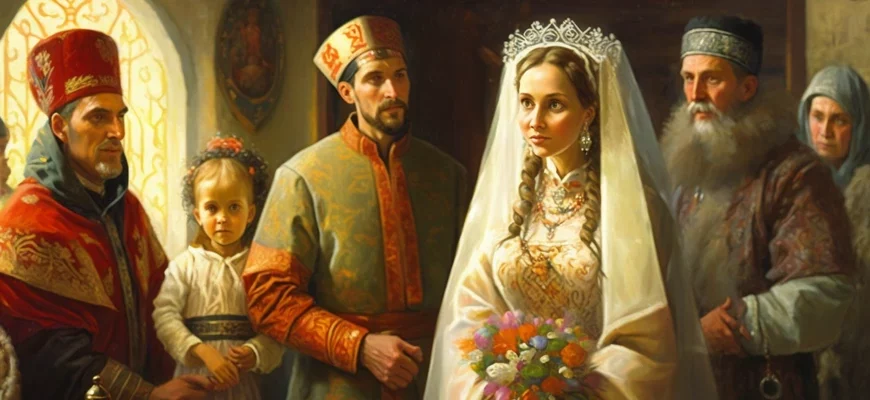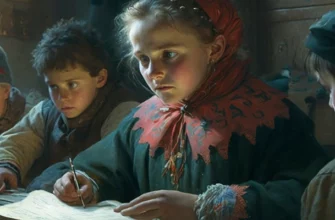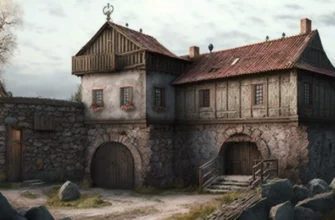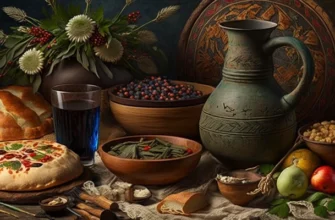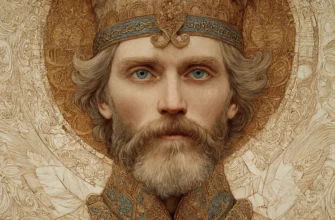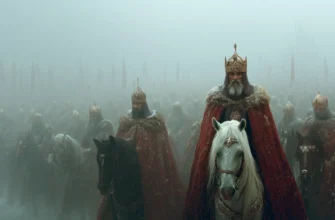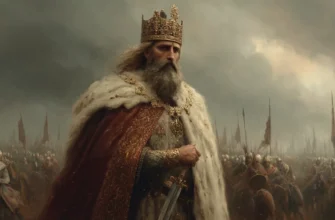Marriage and family were important social institutions in medieval Kievan Rus. At a time when the focus was on strong families, marriage was considered a necessary step towards becoming a full member of society. Women who entered into marriage were expected to become good wives and mothers. However, according to some researchers, women had a certain degree of freedom with regard to marriage and family.
In marital relationships, the main focus was on supporting the family, being attentive to one’s partner, and cooperating in managing the household. In addition, raising children played an important role in shaping future generations. Parents were responsible for passing on values and knowledge to their children.
Thus, the institution of family and marriage in medieval Kievan Rus played an important role in shaping society. The family was the main element in economic life, and marriage was an important social institution that ensured the proper development of society.
- The role of women in family life
- Legal status of women
- The role of mothers in raising children
- Relationships between spouses and family values
- Wedding ceremonies and marriage customs
- The role of the husband in the family and marriage
- Family values and relationships between relatives
- Raising children in medieval Kievan Rus
- Education and upbringing of children
- The role of parents in upbringing and education
- Conclusions: General characteristics of the institution of the family in medieval Kievan Rus and its significance for the development of society
The role of women in family life
In medieval Kievan Rus, women played an important role in family life. Although their role was limited and traditional, women were responsible for many aspects of family life. They ran the household, raised children, and helped their husbands make important decisions.
Women acted as housewives, responsible for cooking, growing vegetables and fruits, and making fabrics and clothes. They also raised children and taught them the basics of religion and morality.
Although women did not have a say in family and community affairs, they could influence their husbands’ decisions. Men often trusted their wives in matters of household management and child-rearing, so women could influence important decisions.
All this allowed women in medieval Kievan Rus to feel their important role in family life and gave them a certain freedom in decision-making. In general, women were an integral part of the family and an important element in shaping the future generation.
Legal status of women
The legal status of women in medieval Kievan Rus was quite limited. Women did not have the right to vote, could not be witnesses in court, and did not have the right to inherit property. However, women could hold certain positions in the church, such as nun or deaconess.
In the event of divorce, women usually returned their dowry, but if they did not have a dowry, their husband would return a certain amount of money or belongings to them. Women could also receive help from family and friends if necessary.
In certain cases, women could own property if they were married to significantly older or underage men. Also, if the husband was absent for a long time or was declared dead, the wife could become the head of the family and manage the household.
Nevertheless, women’s rights were significantly limited compared to men’s rights. These restrictions were related to the stereotypical view of the role of women in society that prevailed at that time.
The role of mothers in raising children
Mothers played an important role in raising children in Kievan Rus. They were responsible for caring for young children, as well as teaching older children crafts, household skills, and religion. Mothers passed on to their children the values, traditions, and moral norms that were important for the functioning of society.
Mothers also taught their children etiquette and rules of behavior in public places. They taught children how to follow the rules of behavior at the table, how to behave when visiting, and how to communicate with older people.
In difficult times, such as during war or illness, mothers also played the role of protector and leader of the family. They took responsibility for providing food and safety for their children.
Thus, the role of mothers in raising children in Kievan Rus was extremely important. They passed on their knowledge and skills to subsequent generations, helped to preserve cultural and national identity, and ensured the harmonious functioning of families and society as a whole.
Relationships between spouses and family values
Relationships between spouses and family values in Kievan Rus were based on traditions and cultural norms. Marriage was considered an important event in the life of every person and family and was accompanied by a number of religious and social rituals.
After marriage, the spouses became an independent family with their own rights and obligations. The husband was the head of the family and responsible for providing for the family, while the wife took care of household matters and raising children.
In Kievan Rus, mutual respect and love between spouses were valued. The husband had to respect his wife’s opinion, listen to her advice, and help her with household chores. In turn, the wife had to support her husband, help him with his work, and take care of his well-being.
One of the most important values in the family was unity and mutual support. The family was considered extremely important for every member of society, and family members supported each other in all situations. It was also important to preserve family traditions and observe family customs.
Wedding ceremonies and marriage customs
Wedding ceremonies and marriage customs in Kievan Rus were of great importance and have survived to this day in the form of ethnographic rituals.
Before the wedding, various rituals were performed to ensure a long and happy married life for the newlyweds. These rituals included the appointment of matchmakers, which was carried out with the help of special rituals. It is also worth noting that rituals during the engagement were widespread in Kievan Rus, which included gifts and the presentation of towels.
The main stage of the wedding ceremony was the wedding liturgy, which took place in the church. After the ceremony, rituals related to economic activities were performed, such as giving gifts to the newlyweds in the form of livestock and other valuables.
Customs related to wedding preparations and family support were also widespread in Kievan Rus. These customs included the wedding loaf, which symbolized domestic comfort and family unity, as well as gifts to the newlyweds in the form of money and various valuables.
All these rituals and customs were aimed at ensuring a long and happy married life for the newlyweds, as well as at recreating and strengthening family ties in Kievan Rus.
The role of the husband in the family and marriage
In medieval Kievan Rus, the husband played an important role in the family and marriage. He was the head of the family and was responsible for all matters related to the household, raising children, and maintaining family traditions.
The husband had the right to make decisions in the family, and his opinion was decisive in matters concerning the marriage and family. He also provided financial support for the family by earning a living.
Along with this, Kievan Rus established certain rules of conduct for men in the family and marriage. They had to be respectful to their wives and children, refrain from domestic violence, and adhere to moral and ethical norms.
In general, men in Kievan Rus were responsible for the well-being of their families and were entitled to respect and honor in society.
Family values and relationships between relatives
Family values were very important in medieval Kievan Rus. The family was considered the basic unit of society, and relationships between relatives were based on respect, honoring traditions, and supporting one another.
An important aspect of family values was caring for and respecting older relatives. Older people had great authority in the family and society, and their opinion was always listened to.
The concepts of mutual assistance and solidarity between relatives were also important in Kievan Rus. The family always supported each other, helped in difficult situations, and shared their property and resources.
Raising children in medieval Kievan Rus
Raising children in medieval Kievan Rus was aimed at imparting the basic knowledge and skills necessary for life at that time. The main role in raising children belonged to the family and the church.
One of the main tasks of upbringing was to pass on moral values and religious beliefs. Children were forced to listen to their parents and observe religious rites. The family was considered the main form of upbringing, where parents passed on to their children knowledge about traditions, skills, crafts, and other knowledge necessary for life.
The church also played a significant role in the upbringing of children, particularly through religious education and moral instruction. Children learned to read and write, as well as familiarized themselves with basic religious concepts and rituals. In addition, the church provided children with food and shelter in many cases.
In medieval Kievan Rus, men were responsible for raising boys, while women were responsible for raising girls. From an early age, children helped their parents with household chores and crafts, which allowed them to gain certain experiences and skills.
In general, the upbringing of children in medieval Kievan Rus was aimed at forming religious and moral consciousness and transmitting the knowledge and skills necessary for life at that time.
Education and upbringing of children
The education and upbringing of children in medieval Kievan Rus were linked to the religion, traditions, and culture of the time. The main goal of education was to pass on the knowledge necessary for life at that time, as well as to form moral and religious consciousness.
Education in medieval Kievan Rus was predominantly religious. The church played an important role in education, as it was the only center of education and the place where books were kept and manuscripts were copied. Children attended church schools, where they learned to read, write, and calculate. The main subjects taught were religious texts, as well as Latin and Greek.
In addition to church education, many cities had municipal schools where children from wealthy families studied. These schools taught literacy, music, arithmetic, and Latin.
The upbringing of children in medieval Kievan Rus was associated with strict rules and rituals that played an important role in the formation of moral values. The family was the main form of upbringing, where children learned the traditions and skills of their ancestors. Parents passed on to their children knowledge of crafts, agriculture, and other skills necessary for life.
The upbringing of children in medieval Kievan Rus was an important part of the culture of that time. It was aimed at shaping the moral, religious, and ethical consciousness of the child. Parents taught their children to respect their elders, follow traditions and customs, and be honest and hardworking.
There were also various traditions and rituals in medieval Kievan Rus that were educational in nature. For example, the ritual of “First Opening of the Book,” which symbolized the beginning of a child’s education, or “First Year,” when parents took their child from the cradle and brought him to the ruler of the city, where he was received and blessed.
However, it should be noted that access to education and upbringing was limited in medieval Kievan Rus. Education and upbringing were mainly available to children from wealthy families, while poor children worked on their parents’ farms.
Thus, the education and upbringing of children in medieval Kievan Rus’ were linked to the religion, traditions, and culture of the time. The main goal of upbringing was to impart the knowledge necessary for life in those times, as well as to shape moral and religious consciousness. Parents passed on to their children knowledge of crafts, agriculture, and other skills necessary for life. The upbringing of children was also linked to strict rules and rituals, which played an important role in the formation of moral values.
The role of parents in upbringing and education
In medieval Kievan Rus, parents played an important role in the upbringing and education of their children. Parents passed on to their children the knowledge and skills necessary for life in those times, such as agriculture, crafts, fishing, etc. They also taught their children to follow traditions and customs, respect their elders, and be honest and hardworking.
Parents in medieval Kievan Rus also had the opportunity to learn themselves, so they were usually educated and could pass on their knowledge to their children. However, access to education and upbringing was limited, so not all parents were able to pass on their knowledge to their children. Also, poor families were unable to send their children to school because the children were busy working on their parents’ farms.
Parents also played an important role in raising their children from a moral and religious point of view. They taught their children to be good people, to respect others, and to observe religious rites and traditions.
Thus, parents in medieval Kievan Rus played an important role in the upbringing and education of their children. They passed on knowledge, taught children traditions and customs, and raised them from a moral and religious point of view. Parents were the main mentors and role models for their children, and this helped them become successful and good people in the future.
Conclusions: General characteristics of the institution of the family in medieval Kievan Rus and its significance for the development of society
The institution of the family in medieval Kievan Rus was very important for the development of society. The family was the basic element of the social structure, and parents played a key role in the upbringing and education of children.
In medieval Kievan Rus, families were usually large and had many children, as children helped with the household and provided for their elders in their old age. This contributed to the preservation of the traditions and culture of the people, as customs, knowledge, and skills were passed down from parents to children.
Parents played an important role in raising and educating their children. They passed on not only knowledge of agriculture and crafts, but also raised their children from a moral and religious point of view. Parents also set an example for their children, teaching them to respect their elders, to be hardworking and honest.
The family in medieval Kievan Rus played a key role in the life of society. The institution of the family was the basic unit of social organization, in which the main values were relationships, trust, respect, and mutual support.
In medieval Kievan Rus, the family consisted of a father, mother, and children, as well as possibly the older generation of the family. Each family had its own customs, traditions, and rules of conduct, which were passed down from generation to generation.
The father played an important role in the family, as he was the head of the clan and ensured the family’s material well-being. Mothers were responsible for the household and raising children.
The institution of the family in medieval Kievan Rus played an important role in the development of society.
